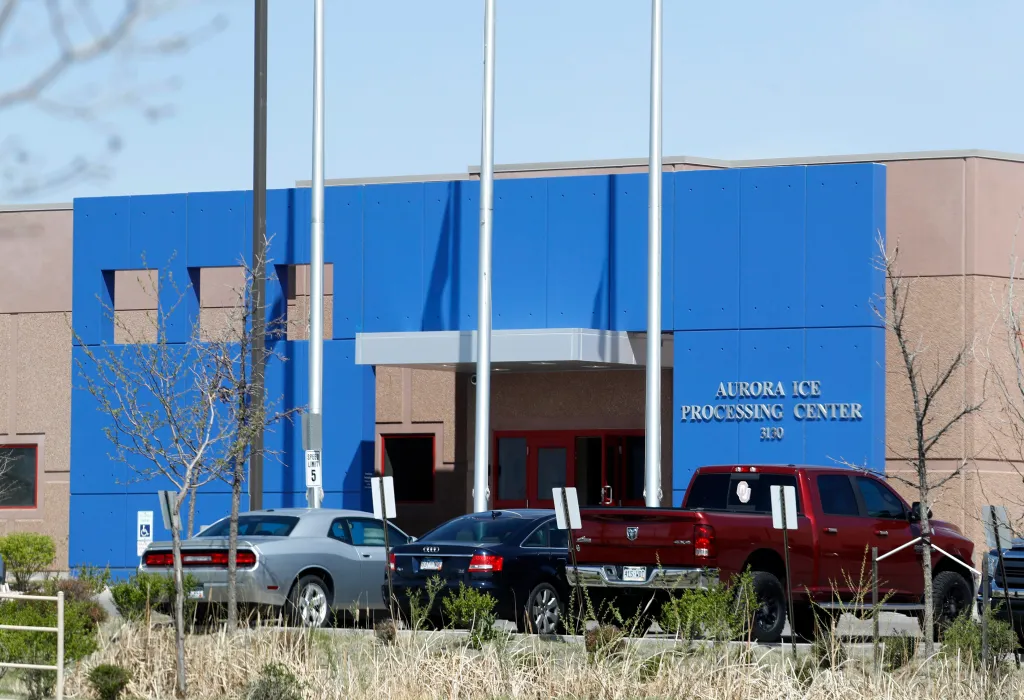Copyright Slate

Sign up for the Slatest to get the most insightful analysis, criticism, and advice out there, delivered to your inbox daily. It’s not that Louise Esveld was afraid to protest the president; it’s Iowa, after all. And they don’t call it “Iowa nice” for nothing. And this is not just Iowa, but Pella, Iowa, one of the safest cities in the state. Bad things don’t happen in Pella. People keep their keys in their cars; homes are left unlocked. They have a picturesque downtown with an authentic Dutch canal that is over 100,000 square feet. There is an annual tulip festival that celebrates Pella’s Dutch heritage. In 2010, Pella set the world record for the largest clog dance, with 2,600 people showing up to dance in wooden shoes. They have the largest wooden windmill in America. It is a 1850s grain mill that was brought over from the Netherlands, for Pete’s sake. Everyone keeps things nice here, no matter the cost. All mess is immediately swept up. No trash in the park or in the streets. I saw someone drop their keys, and when I picked them up, three other people rushed to help me find the owner. Everything and everyone has their place in Pella. Things are done a certain way. And they will keep it nice, even against your will. If you don’t mow your lawn, the city will give you a notice, and then mow it for you, attaching the cost to your water bill. There is a certain kind of violence to this kind of niceness—a ferocity to the smiles and a brutal dedication to keeping all disagreement and unpleasantness hidden away. And that kind of niceness—the wide smiles, the generosity—it can hide deeper resentments that go back generations, that will snap at you like a stick to keep you in line. This means no one talks about politics. Not if they can help it. That is how things stay nice. Whether you want them to or not. Pella is 44 miles away from Des Moines. Even farther from Chicago, Portland, or Los Angeles— the big cities that the president has alleged are filled with “lawless mayhem” and overrun with crime. There are barely any Democrats here. And no one here is seriously Antifa, and under no circumstances are they inciting violence. Respectfully, they don’t have the knees or the stamina for that kind of conflict. It’s not the Midwestern way. But Donald Trump’s movement has collapsed political and geographical boundaries; the enemy is everywhere, it’s everyone who opposes him, it’s everyone who disagrees with him, even this group of Lutheran and Dutch Reformed retirees. It has stopped people from seeing their neighbors as humans. So, Esveld was afraid, just a little. Afraid of stirring things up. Pella hasn’t had a protest in so long no one can really remember one. Esveld guessed there was one in 2000, but no one remembers what for. But her greatest fear isn’t confronting her neighbors, it’s what will happen if she doesn’t protest, if she doesn’t say anything. Esveld has a granddaughter that she thinks of. Just a toddler, who is growing up in a world with fewer rights that she had. Her kids have left Iowa, and it’s important, she believes, that she stays here and fights for this place. What kind of legacy is she leaving if this is the world her grandchildren inherit? So she needed to be at the protest. Esveld is a force in local politics, but she needed to take a public stand against the way she sees the president moving the country. Even if she just stood out there with a sign and registered her displeasure just once, she needed to be loud, to say a declarative no to what was happening around her. Even if in the end, it was just that, one loud no. That lasted for a moment. Esveld explained all of this to me the morning of Oct. 18 over coffee and raisin rolls in her home. When she heard I was coming to the protest, she invited me and some of her friends who were protesting with her over for breakfast. Raisin rolls with beef and cheddar are a Dutch thing, she told me, along with a flaky pastry called Dutch letters, which she also served. Esveld is 73, and her friends are all in their 70s, except for Jen Lily, who helped organize the Pella protest. Lily was 54 that Saturday, but she had a birthday on Sunday. Around Esveld’s table, they told me how upset they were with the way America was headed. And how so many progressives in Pella feel alone. Sure, Iowa has redder counties. For example, Cass County down near Nebraska only went blue once in the past 100 years, and that was for FDR, and FDR only once. But since 1952, Marion County, where Pella sits, has been reliably Republican, only going for Democrats in ’64 (Lyndon Johnson), ’76 (Jimmy Carter), and ’88 (Michael Dukakis). Marion County didn’t even go for Obama like the rest of the state did in 2012. And in 2024, nearly 70 percent of the county voted Republican. So, it’s safe to say that in the heart of America’s heartland, Pella is a town where Trump reigns as king. And Esveld and her friends were going out to protest that king in front of God, Jesus, and all their neighbors. As we sat around the table, they made jokes about being Antifa or perhaps being terrorists with their bad knees. Dan Timmer, who drove down that morning from Iowa City, where he was visiting family, joked he was coming in from the big city to be an agitator. (For the record, Timmer barely even shouted during the chants at the protests.) But things had been getting a little tense, even in nice little Pella. One woman said she didn’t even tell her husband she was protesting. He’s a long-haul trucker. She loaded up her car with all her signs before he came home. She said he’s always been political, but driving all day and listening to talk radio and podcasts made him very conservative. He argues with people on Facebook. A few of the others at the table admitted they’d blocked him on Facebook after he commented on their posts. Sherril Graham said she thought the national norms were making people ruder and more radicalized. She said a City Council candidate came to her door and said that Democrats want to kill babies in really late-term abortions. Graham tried to argue with her, saying that it doesn’t happen and that those cases are rare and tragic. But the woman insisted that she heard they were happening somewhere in Minnesota. During the Fourth of July parade a man stood on the street and screamed “Baby killers” at the Marion County Democrats float. People think they are groomers, too, they hear that one a lot. Which means that people in their community think that because Democrats support LGBTQ+ rights, they are grooming kids to be victims of sexual predators. It’s a line that is repeated often in Pella, as when local residents petitioned to have the book Gender Queer taken out of the public library and have the library placed under the control of the City Council. That measure was narrowly defeated, and resentments remain strong. But Esveld is having none of that line. “We are the ones who were groomed,” she said. The women start talking about how they couldn’t even wear pants in high school. One woman says she could when it was 15 degrees. Esveld and another woman, a couple of years older, say they never could. It’s a reminder of how so many of these women who marched on Oct. 18 didn’t even have the right to an abortion. Women couldn’t get a credit card without a man’s signature until these women were in college. No one is listening to anyone these days, they all agree. Out here in red, red Iowa, everyone is in their own silos. Which is why they want to be loud. And be part of this protest. They feel like they’re fighting for something essential, and if they don’t show up, if they don’t show their neighbors that they’re here and they matter, then something vital will be lost. We get to the protest at 9:30. It’s not scheduled until 10, but no one wants to be late. By the time we get there, other people are gathering. A man in his 70s wears an orange shirt that reads “I’m antifa.” He has a cigarette in one hand and a cup of gas station coffee in another. He fought in Vietnam. His father fought in World War II. He doesn’t protest, he used to identify as an independent voter, but he’s a Democrat now. He has coffee with other old guys like himself, some of them who don’t think Jan. 6 really happened. But he goes and he argues with them. He’s trying to change their minds: “We are not terrorists, we are your neighbors.” The crowd fills up the park and people gather until the Tulip Totem arrives. It’s two large white poles that hold up bells with a sign between them that reads “Tulip Time.” They’re only allowed on the sidewalk, and Lily, on the megaphone, tells everyone to behave and follow the rules, and they do, and she begins to lead them in cheers. Esveld said 70 people RSVP’d but already they think they have 100. Later the count swells to 130; someone tells me that another woman, Marion, said so. Later, Esveld will tell me 300. The number is probably closer to 150. But it’s more than anyone expected. They chant, “This is what Democracy looks like!” as they walk, nicely, on the sidewalk. As they move around the park, I hear people say “Oh I am sorry, was I in your way?” “I can’t believe I stood in your way.” I walk across the street. Most people are sliding out of the shop doors and hustling down the street with their kids, not making eye contact with the protesters. It’s the kind of passive shuffle people do when faced with someone unhoused asking for money, or when someone having a mental health crisis begins ranting in the streets. It’s the pretend this person doesn’t exist, look at your shoes, let’s just have a nice day, hurry by move that Midwesterners have perfected. Walk by and maybe, just maybe, you don’t have to deal with whatever mess is trying to pull you in. But there is a line of people watching with their backs to the charming coffee shop, bakery, and stores selling Dutch-themed merchandise. They are mostly silent, standing with their arms folded. One woman, in her 70s, is filming with her phone, and she’s whispering to the woman next to her, who is maybe in her late 30s or early 40s. I hear the words “disgusting” and “disrespectful.” So I turn and ask them if I can ask them some questions for my story. The older woman demands to see my badge. I try explaining that journalists are not like cops, we don’t have badges and numbers. Sometimes we have badges, but I prefer not to have one, sometimes it makes me a target. I am trying to tell her I can show her my ID and she can research me, but she’s shouting over me, not making eye contact. Telling the younger woman, “This is the oldest trick in the book! This is how they get you!” She tells me, “Get off the sidewalk!” And I raise my hands and try to apologize. I will leave them alone. It’s a snap of anger, repressed and now rising to the surface. What is happening over there isn’t nice, isn’t good, it’s dangerous. A code has been violated. Pella is a nice place and how dare we, how dare anyone, bring these voices and values here. The younger woman walks away and returns a minute later with a man. The man and woman walk by me as the man mutters, “You people are crazy” and other words people don’t usually say on the streets of Pella. Bitch. Fucking crazies. I turn to the two men behind me. Scott Werner and Bob Klein. They’re standing watching the protests, their arms crossed and faces grim. They are critics of the protest, but are less hostile when I ask to talk to them. Werner is also a veteran, and as we talk, a family passes by and they stop, the father whispers into the son’s ear, and the son, who is around 9 or 10 walks up to Werner and thanks him for his service. Werner nods. This is how things should be done, ought to be done. Not like this, this protest. He’s angry, but he holds back. He supports the right to protest, so does Klein, but they don’t think this is the way. This is not the right way. Go talk to your congressman or senator. Call and write letters, but not this. This, Werner says, waving his hand toward the protesters, “is not going to do anything.” It’s pointless. And it’s clear it’s making their Saturday less pleasant. And it is a pleasant day in Pella. The day started chilly and foggy, but cleared, and it’s now in the mid-70s. Everything in Iowa is gold and rust. It’s the perfect day for football or apple picking or walking through a charming town and getting pastries and coffee. But Werner and Klein don’t like what they see. And what they see are a bunch of brainwashed liberals. I point out that they are their neighbors, but they both shake their heads. “These people are from out of town,” says Werner. Klein tells me when you live in town this long you know how to spot a Pellacan—a term for Pella natives—and these aren’t them. I try pushing back, saying I was just at Esveld’s home mere blocks away. I talked to other people at the protest who were members of Hope Lutheran. Sure, some were from Oskaloosa or Knoxville, but they were all in this county. But they don’t believe me. And I have to concede, I didn’t talk to everyone. But it doesn’t make sense. Where would they be from, these people in their 60s and 70s, with their signs and bad knees? Who would send them to Pella, and for what? I try asking, but Klein wants to tell me that Pella is one of the safest cities in Iowa. And notes that all those people benefit from Republican policies. Maybe if they don’t like it … “Should they leave?” I ask. “No, they should just be honest with themselves.” That’s all he will allow. But what they both tell me is that no one is listening to each other. Everyone lives in their own worlds listening to their own truths. No one is talking to each other. When I ask Klein where he gets his information, he changes the subject to Joe Biden, who he doesn’t like, but he thinks the Democrats mishandled and maybe if they’d run someone better we wouldn’t be here. Klein liked Vivek Ramaswamy, that’s who he wanted to be president. But here we are. And where we are is here in Pella, where 150–200 people are chanting “No kings! No crowns!” Under a Tulip Totem. And Klein tells me that I need to go to the bakery and get an almond cake. He pats my arm, then walks me to Jaarsma Bakery and stands in line with me, telling me how good the cake is. Then, he leaves me. Inside the bakery I can still see the protesters, but it’s hard to hear them. Everyone in line is pretending they don’t exist. I ask the woman in front of me what she thinks of them but she shakes her head—she’s just there for a croissant. They only have them on Saturdays. The women behind me are lively and chat about the weather, but the moment I ask about the protests, they stop talking. This is Pella, Iowa, things are nice here. And no one wants my questions or the shouts of the protesters. So I buy my cakes, and when I step outside, the protest is over. Just a few people standing in clusters holding their signs. The line of spectators is gone too. The tumult is over. Everyone is back to their lives of apples, and football, and kids’ sports, and pastries. Later, I would find out that social media was impressed by the protests in rural areas. I’d see social media posts talking about the small rural communities, where no one really protests, having gatherings of 100–200. Or even just the places where one woman sat on a lawn with a sign. It meant something to people, something that felt like, maybe, maybe they could fight this. But in the park, I don’t see any mess, any abandoned signs. Everything is picked up, tidy, set right. It’s hard to know that anything happened. You could go crazy like this. Shouting, shouting and having no one listen. Having everyone turn away and go about their neat, mowed-lawn lives.



